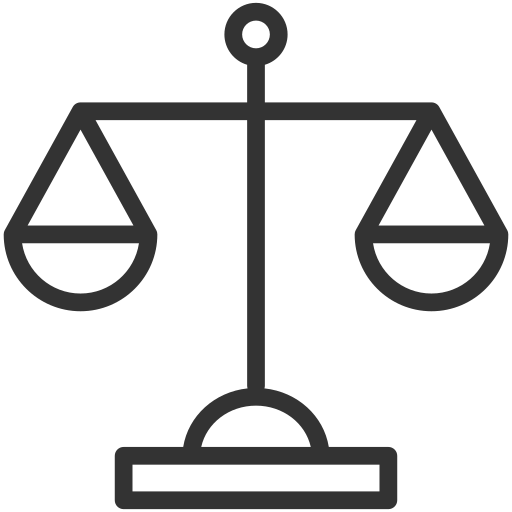|
THE
MINISTRY OF HEALTH OF VIETNAM |
THE
SOCIALIST REPUBLIC OF VIETNAM |
|
No: 45/2024/TT-BYT |
Hanoi, December 24, 2024 |
CIRCULAR
ON AMENDMENTS TO SOME ARTICLES AND APPENDICES ATTACHED TO CIRCULAR NO. 11/2018/TT-BYT DATED MAY 04, 2018 OF THE MINISTER OF HEALTH ON QUALITY OF DRUGS AND MEDICINAL MATERIALS
Pursuant to the Law on Pharmacy dated April 06, 2016;
Pursuant to Decree No. 54/2017/ND-CP dated May 8, 2017 of the Government on guidance on implementing the Law on Pharmacy;
Pursuant to Decree No. 155/2018/ND-CP dated November 12, 2018 of the Government amending some regulations related to business conditions under the state management of the Ministry of Health;
Pursuant to Decree No. 95/2022/ND-CP dated November 15, 2022 of the Government, defining the functions, tasks, powers and organizational structure of the Ministry of Health;
At the request of Director General of Drug administration of Vietnam;
The Minister of Health issues a Circular on amendments to some articles and appendices attached to Circular No. 11/2018/TT-BYT dated May 04, 2018 of the Minister of Health on quality of drugs and medicinal materials
Article 1. Amendments to some articles and appendices attached to Circular No. 11/2018/TT-BYT dated May 04, 2018 of the Minister of Health on quality of drugs and medicinal materials.
1. Amendments to point c of clause 1 of Article 4:
“c) If the manufacturer announces its application of one of the pharmacopeias specified in Point a of this Clause, but adopt test methods different from the ones specified in the drug/medicinal material’s treatise in the chosen pharmacopeia, the manufacturer must prove their chosen methods' equivalence to the pharmacopeia’s methods. The test results from the methods stated in the pharmacopeia are the basis for evaluation of drug quality.
In case the test method stated in the pharmacopeia does not ensure the correctness and accuracy of the test in accordance with applicable regulations due to the influence of the formula ingredients and the method of preparation/ manufacture of the drug, the drug manufacturer must provide an explanation and information in the drug registration application/drug use instructions. The test results from the methods stated in the quality standards approved in the registration application are grounds for determining drug quality;”
2. Amendments to clause 2 of Article 6:
“2. For drugs or medicinal materials that have already been allowed for circulation: For a maximum of two years from the effective date of the pharmacopeia’s latest edition, the registrant or manufacturer have the responsibility to update the standards of drugs and medicinal materials as regulated by that edition. In case the drug/medical material’s treatise in the chosen pharmacopeia has changes in quality criteria and quality levels in a more stringent and improved direction, the drug registrant must carry out the procedures for registration of changes in accordance with Chapter III, Chapter IV of Circular No. 08/2022/TT-BYT dated September 5, 2022 of the Minister of Health prescribing the marketing authorization of drugs and medicinal materials”.
3. Amendment to Point a of Clause 2 of Article 10:
a) Review the records and conduct tests on the vaccine/biological samples received;
In order to ensure the supply of vaccines and medical biologicals for urgent needs for national defense, security, disease prevention, and overcoming the consequences of natural disasters and catastrophes, the National Institute for Control of Vaccines and Biologicals (NICVB) shall review the manufacturer’s batch test report, storage and transportation conditions, and inspect a number of quality criteria to proceed with the batch release;”
4. Amendment to Point d of Clause 2 of Article 11:
“d) The quality certificate issued by the country of origin’s authorities and manufacturer’s batch test report for each batch of imported vaccine/biological (copies certified by the importer);”
5. Amendment to Clause 3 of Article 11:
“3. Registrant/manufacturer has to take responsible for their document's legality.
In order to ensure the supply of vaccines and medical biologicals for urgent needs for national defense, security, disease prevention, and overcoming the consequences of natural disasters and catastrophes, importer shall be exempt from submitting dossier on review the manufacturer’s batch test report, storage and transportation conditions, and inspect a number of quality criteria to proceed with the batch release;”
6. Amendment to Point a of Clause 2 of Article 12:
“a) In 24 hours from the time the information on unconformable drugs mentioned in Points a, c, d, and dd of Clause 1 of this Article, the Ministry of Health (Drug Administration) shall determine the violation’s seriousness and draw conclusions on drug recall, based on assessment of consumer health's risks.
If the drug registration advisory board's opinion is requested for determination of the violation’s seriousness, as specified in Section IV of Appendix II attached hereto, the time limit of identification of violation's seriousness will be 7 days;”
7. Amendment to Clause 1 of Article 15:
“1. The recalled drug can either be rectified or re-exported if:
a) It is third-degree violation and does not fall into the type of drug mentioned in Point b of Clause 2 of this Article.
b) Multi-component drugs are packaged together in external packaging, with the individual components packaged in separate packaging, where one or more of the drug components do not meet quality standards. Depending on the violation degree of the component, it may be rectified, re-exported, or disposed of in accordance with applicable regulations. Other components that meet quality standards may be repackaged accordingly.”
8. Addition of Article 15a after Article 15:
“Article 15a. Suspension and storage of drugs that are suspected to be unsafe
1. Receive information on drugs that are suspected to be unsafe:
The Ministry of Health (Drug Administration) shall receive information along with relevant documents (if any) regarding drugs that are suspected to be unsafe:
a) Competent authorities (including police, customs, market surveillance, inspectorate, overseas diplomatic missions of Vietnam, foreign diplomatic missions in Vietnam);
b) World Health Organization, overseas drug regulatory authorities, or health regulatory authorities;
c) Departments of Health of provinces and centrally affiliated cities;
d) Drug information and advert reaction monitoring center;
dd) Drug manufacturers, pharmacy business establishments, organization using drugs and other agencies, organizations and individuals.
2. Form of information on drugs that are suspected to be unsafe:
a) Official documents from the agencies specified in points a, c, and d of clause 1 of this Article sent directly or via mail to the Ministry of Health or through the Ministry of Health's electronic document management and operation system;
b) Official documents from agencies specified in point b of clause 1 of this Article sent via email or posted on the websites of the agencies;
c) Complaints, denunciations or direct reports to competent authorities in accordance with laws on complaints and denunciations of agencies, organizations and individuals specified in Point dd of Clause 1 of this Article.
3. Drugs that are suspected to be unsafe include:
a) Drugs reported with serious or repeated adverse reactions related to the drug that are not previously known adverse reactions of the drug;
b) Drugs that are suspected to contain toxic substances, impurities exceeding safe limits for users;
c) Drugs that are suspected of not meeting quality standards;
d) Drugs that are suspected of being counterfeit or of incorrect origin;
dd) Drugs from raw materials of unknown origin or not meeting quality standards;
e) Drugs suspected to be from manufacturers who seriously violate the principles and standards of Good Manufacturing Practice for drugs and medicinal materials, or drugs that are not certified by the drug regulatory authority as meeting the conditions required to maintain drug manufacturing.
4. Responsibilities of the Ministry of Health (Drug Administration) in handling information, informing suspension and storage of drugs that are suspected to be unsafe:
a) Within 7 working days from the date receiving information as stipulated in clauses 1 and 2 of this Article, the Ministry of Health (Drug Administration) shall review the received information, cooperate with at least one of the specialized agencies or organizations (Marketing Authorization Advisory Board; Vaccine Advisory Board; National Institute of Drug Quality Control; Institute of Drug Quality Control of Ho Chi Minh City; National Institute for Control of Vaccines and Biologicals; Board of Drug and Treatment at special-class hospital) or inspectorate, police, customs, market surveillance authorities when necessary, to assess the risks to the health of users, determine the scope of suspension of drugs that are suspected to be unsafe specified in clause 3 of this Article;
b) Within 03 days from the date of having a conclusion on drugs that are suspected to be unsafe, the Ministry of Health (Drug Administration) shall inform in writing the suspension of manufacture, import, distribution, use, and sealing of one or more batches of drugs or drug products that are suspected to be unsafe;
c) The period of suspension and storage of drugs suspected to be unsafe for verification:
The suspension period shall not exceed 02 months from the date of issuance of the document. If the situation is complex or technical conditions for drug analysis and testing within the country are not advanced, the suspension period may be extended for an additional 2 months.
Passing the above-mentioned deadline, if police, market surveillance, customs, inspection authorities request to continue the suspension to serve the investigation, verification process, the suspension period shall be extended based on the applicable regulations and the requirements of the aforementioned competent authorities;
d) The Ministry of Health (Drug Administration) shall cooperate with relevant competent authorities, organizations, individuals to conduct verification and draw conclusions on the quality of drugs, the safety level for users of drugs.
For cases of information on drugs specified in points a and b of clause 3 of this Article, the Ministry of Health (Drug Administration) shall report to the Marketing Authorization Advisory Board or the Vaccine Advisory Board (for vaccines) for review and conclusions. If sufficient grounds are required for drawing a conclusion, central drug quality control facilities (National Institute of Drug Quality Control; Institute of Drug Quality Control of Ho Chi Minh City, or National Institute for Control of Vaccines and Biologicals) shall conduct analysis/testing to determine drug quality.
For cases of information on drugs specified in points c and dd of clause 3 of this Article, the Ministry of Health (Drug Administration) shall take charge and cooperate with the National Institute of Drug Quality Control; Institute of Drug Quality Control of Ho Chi Minh City, or National Institute for Control of Vaccines and Biologicals in conducting analysis/testing and drawing conclusion on quality of drugs and medicinal materials.
For cases of drugs suspected of being counterfeit, drugs, medicinal materials of unknown or incorrect origin specified in points d and e of clause 3 of this Article, the Ministry of Health (Drug Administration) shall send information to competent authorities (police authorities/market surveillance authorities/customs authorities/Ministerial inspectorates) along with documents, materials for investigation, verification within their jurisdiction and in accordance with law.
For cases of information on drugs specified in point e of clause 3 of this Article, the Ministry of Health (Drug Administration, Ministerial inspectorates) shall conduct unexpected inspections of drug manufacturers to verify compliance with drug manufacturing conditions as stipulated for domestic drug manufacturers and pharmacy business establishments or cooperate with the relevant competent authorities to handle overseas drug manufacturers;
d) Within 03 days from the date having the conclusion that the drug does not violate regulations or after suspension as stipulated in point c of this clause without a violation conclusion, the Ministry of Health (Drug Administration) shall issue a document permitting the facility to resume manufacture, import, distribution, use of drugs or batches of qualified and unexpired drugs.
If it is concluded that the drugs have violated regulations and are unsafe, the Ministry of Health (Drug Administration) shall issue a document recalling the suspended, suspending the manufacture and import of unsafe drugs; impose administrative penalties for violations, or transferring to the competent authorities for criminal liability as prescribed.
5. Responsibilities of the Departments of Health in handling information, informing suspension and storage of drugs that are suspected to be unsafe:
a) Inform the Ministry of Health's conclusions to drug traders/users in the area, and monitor the suspension and storage of unsafe drugs;
b) Inform Ministry of Health's conclusion regarding allowing the facility to continue trade, use drug, or recalling drugs; monitor drug traders/users carrying out drug recall as prescribed;
c) Cooperate with relevant competent authorities in the local area to inspect and verify information related to drugs suspected to be unsafe for the aforementioned cases occurring in the area or as requested by the Ministry of Health; report the results to the Ministry of Health (Drug Administration, Ministerial inspectorates).
Responsibilities of drug traders/users:
a) Fully and promptly report cases of unsafe drugs to the Ministry of Health (Drug Administration) or the Department of Health;
b) Suspend and store drugs suspected to be unsafe in accordance with conclusion from the Ministry of Health (Drug Administration); seal and store drugs correctly as prescribed by the instruction on their labels;
Cooperate with competent authorities in verifying the safety of such drugs (provide documents, materials, and evidence serving the verification;
c) Continue doing pharmacy business or use drugs in accordance with conclusion from the Ministry of Health (Drug Administration);
Recall unsafe drugs according to the drug recall document issued by the Ministry of Health (Drug Administration) in cases where the drugs must be recalled as prescribed.”
9. Amendments to clause 3 of Article 16:
“3. Responsibilities of Departments of Health:
Inform local drug manufacturers, pharmacy business establishments, medical establishments on documents on suspension and storage and upload them on websites of Departments of Health;
b) Cooperate with facilities having drugs with quality violations in collecting additional drug samples as specified in Point b of Clause 1 or Point b of Clause 2 of Article 14 hereof, or direct the testing facilities to do so or direct the testing facilities to do so;
d) Organize supervision of drug recall in the Departments’ jurisdictions; take actions against and penalize facilities violating drug recall regulations within their competence; report the results of handling and sanctioning to the Drug Administration and the Ministerial inspectorates;
dd) Participate in or carry out assessments of pharmacy business establishments’ drug recall in the Departments’ jurisdictions, under the Ministry of Health’s (Drug Administration’s) direction. Report any drug manufacturer, importer, wholesalers which are distribution hubs that fail to, or insufficiently, recall drugs to the Ministry of Health (Drug Administration);
dd) Organize and participate in coercive drug recall.”
10. Amendment to point c of clause 4 of Article 18:
“c) Establish a system of records and documents in order to supervise circulation of drugs/medicinal materials. Monitor and supervise the quality of drugs/medicinal materials produced by the business establishments; timely discover and handle unconformable drugs, report those drugs to the pharmaceutical and drug quality inspection authorities. Comply with instruction on collecting samples for testing by the quality management agency, issue invoices for payment of such samples in accordance with applicable regulations."
11. Amendment to clause 2 of Section 2 of Appendix II:
“2. The pharmaceutical product is manufactured from materials that fail to meet specifications, except for case of materials that fail to satisfy quality standards but are allowed to be remedied or recycled in accordance with Clause 3 of Article 104 of Decree No. 54/2017/ND-CP dated May 8, 2017 of the Government, on guidelines for implementation of the Law on Pharmacy;”
12. Amendment to clause 3 of Section II of Appendix II:
3. There is no evidence that the drug has undergone quality inspection during the manufacture process and before release (except for the case specified in Clause 5 of Section I);
13. Amendment to clause 10 of Section II of Appendix II:
“10. The drug fails to meet specifications in terms of bacterial contamination (except for the cases specified in Clauses 10 and 11 Section I);
14. Amendment to clause 20 of Section II of Appendix II:
20. The drug fails to meet specifications in terms of sedimentation of blend and emulsion for injection;”
15. Addition of clause 25 to Section II of Appendix II:
“25. The drug fails to meet specifications in terms of uniformity of the dosage unit.”
16. Amendment to clause 19 of Section III of Appendix II:
“19. The drugs that fail to satisfy average weight criterion, are not manufactured in accordance with drug registration application (different weight of a tablet, excipient ratio, type of excipients) but the test results of the remaining indicators still meet the specifications shall be dealt in accordance with their and shall not be recalled.”
17. Point e of clause 1 of Article 12 is annulled;
This Circular comes into force from February 07, 2025
Drug/medicinal material registration applications; applications for issuance of certificates of release of vaccines and biologicals submitted before the effective date of this Circular shall continue to be processed in accordance with regulations at the time of submission, except in cases where the drug registrant, manufacturer, or importer voluntarily comply with the regulations of this Circular from the day which it is signed.
If the documents referred to in this Circular are replaced amended, the regulations of the newer documents shall apply.
Article 5. Responsility for implementation
The Director General of the Drug Administration, Chief of the Ministry Office, Chief Ministerial Inspector, heads of units affiliated with the Ministry of Health, provincial Departments of Health, pharmacy business establishments, other related authorities, organizations and individuals are responsible for implementing this Circular.
Any problems arising during the implementation process must be promptly reported to the Ministry of Health (Drug Administration) for review and resolution./.
|
|
PP.
MINISTER |


















